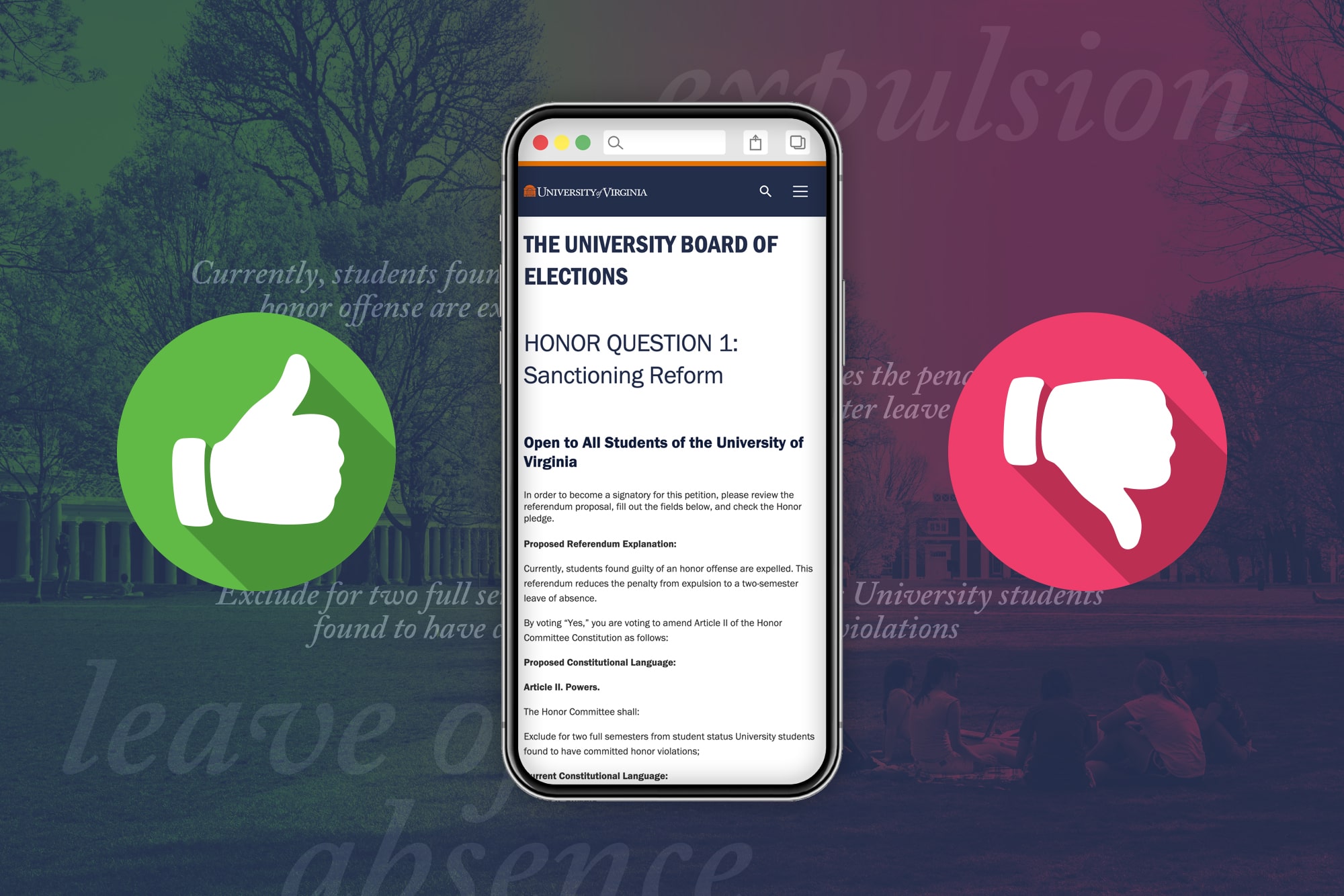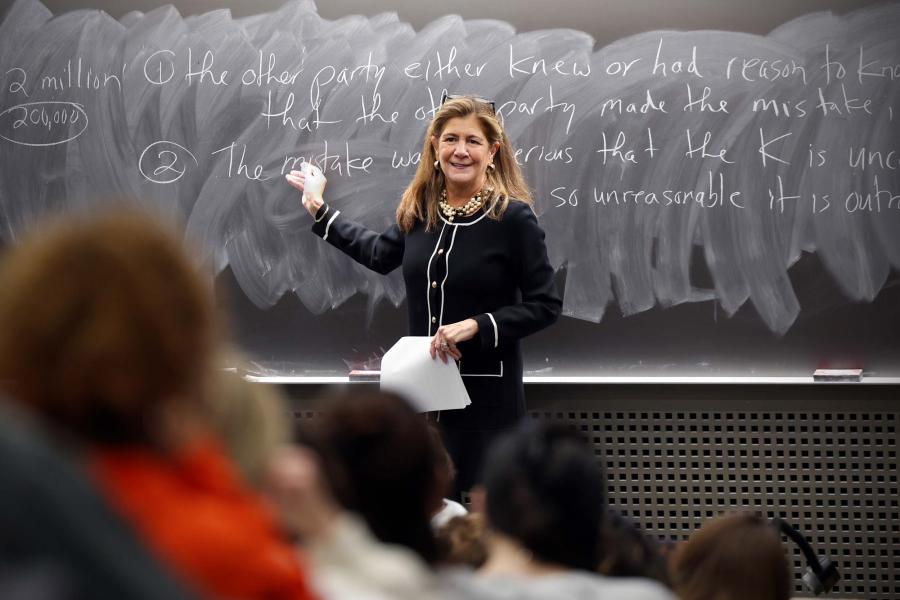In student elections this week, University of Virginia students will vote on a proposal to change the penalty for an honor violation from single-sanction expulsion to a two-semester suspension.
The proposal would change Article II of the Honor Committee Constitution, which currently states that the Honor Committee will “exclude permanently from student status University students found to have committed honor violations.” In the proposed new language, the committee would “exclude for two full semesters from student status University students found to have committed honor violations.”
The proposed change was brought forward by a member of the Honor Committee, third-year School of Law student Christopher Benos, and garnered enough student signatures – 1,250 – to be put on the ballot in this year’s elections. Unlike previous proposals, it does not alter the only current exceptions to the single-sanction rule: “conscientious retractions,” in which a student admits to an honor offense before he or she has come under suspicion, or “informed retractions,” in which accused students take responsibility for an offense before the case proceeds to a hearing. Students who file a conscientious retraction do not face expulsion; students who file an informed retraction face a two-semester suspension.
Elections will run from Wednesday to Friday. The proposal will need to meet two thresholds to pass. First, at least 10% of the total student body must participate in the referendum. Second, of the students who vote in the elections, 60% must vote in favor.
Honor Committee Chair Andy Chambers, a fourth-year student in the College of Arts & Sciences, said the committee encourages all students to participate in the voting process, no matter what their view of the single-sanction penalty.










